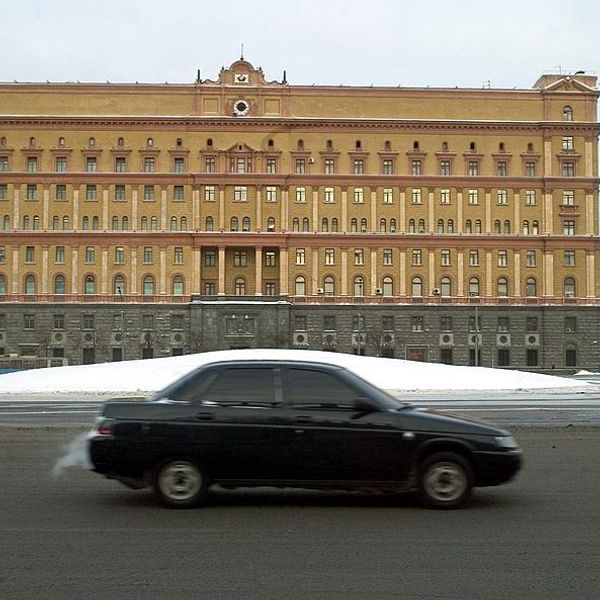OPINION — In his inaugural address, President Donald Trump said: "Our success will be measured not only by the battles we win, but also by the wars we and, perhaps most importantly, the wars we never get into.” It was a clear message to allies and adversaries alike.
President Trump invited China’s President, Xi Jinping, to the inauguration, and China’s Vice President, Han Zheng, did attend. A few days prior to the inauguration, Trump and Xi had a friendly and reportedly productive telephone conversation that dealt with trade, fentanyl, TikTok, Taiwan and other subjects. rump reportedly said he would like to meet with the Chinese leader as soon as possible. Media reporting said that Trump had previously advised his staff that he wanted to visit China, seeking to deepen a relationship with Xi.
A few hours after the inauguration, Russian President Vladimir Putin mentioned in Moscow that a second Trump presidency could represent an opportunity for changes in U.S.-Russian relations. He blamed the rupture in relations with the U.S. on former President Biden, while neglecting to mention Russia’s invasion of Ukraine.
One day after the inauguration, Putin also had a video conference with Xi and stated that the meeting aimed to improve "good neighborly friendship and strategic cooperation" between Russia and China. Putin reportedly went on to say that both countries “jointly support a more just global order.”
Everyone needs a good nightcap. Ours happens to come in the form of a M-F newsletter that provides the best way to unwind while staying up to speed on national security. (And this Nightcap promises no hangover or weight gain.) Sign up today.
It’s obvious that Mr. Trump has the attention of Messrs. Putin and Xi. That’s a positive sign. However, we should remember the February 4, 2022, visit of Putin to Beijing, when Xi spoke of a “no limits partnership” with Russia. What followed was Russia’s invasion of Ukraine on February 24, 2022, China’s refusal to criticize Russia for its war of aggression in Ukraine, its delivery of satellite and space-based capabilities and satellite imagery to Russia, in addition to components and other materials needed to sustain Russia’s defense industry.
A constant theme in Xi’s numerous meetings with Putin is the “global order” and their mutual unhappiness with the role of the U.S. in this world order. As Xi reportedly said during his recent video conference with Putin, both countries aimed to positively contribute to the reform and development of the global system. Both reportedly agreed to work for “lasting peace in developing regions of the world.”
China has worked assiduously on its outreach to developing countries, especially in Africa. China’s Belt and Road Initiative, despite its many faults, does provide development assistance to several countries. A recently-constructed airport in Pakistan and other projects in Cambodia, Laos and Myanmar come with a cost for the recipients of this development assistance – but China is there with financing and the Chinese labor – a contentious issue – to support these projects.
Are you Subscribed to The Cipher Brief’s Digital Channel on YouTube? Watch expert-level discussions on The Middle East, Russia, China and the other top stories dominating the headlines.
Russia and China work closely with the BRICS grouping (Brazil, Russia, India, China, South Africa – and now Ethiopia, Indonesia, Iran and the United Arab Emirates as well), an intergovernmental organization that focuses on economic and geopolitical coordination. Many Global South countries – and others — are interested in joining BRICS.
Unfortunately, it is this type of outreach that the U.S. has neglected since the collapse of the Soviet Union in 1991. There was a perception that with the end of the Cold War, the U.S. system of governance would become widely recognized as effective compared to other forms of governance. We closed the U.S. Information Agency in October 1999 and cut back on cultural exchanges, while also shuttering some of our cultural facilities and libraries abroad. In retrospect, I believe these were unfortunate mistakes.
Today our form of governance is competing with China and Russia’s autocracies. These autocracies appeal to both developing and developed countries, for various reasons. In 1991, when the Soviet Union imploded, it appeared that liberal democracies, which ensure life, liberty, and the pursuit of happiness for their citizens, were a desirable form of governance. We may believe it is a far superior system to dictatorship or autocracy, but this is part of the competition we’re having with China and others. To succeed, we must clearly convey our story and values.
President Trump has an opportunity to tell this story to the world. It’s also an opportunity to contribute to ending the conflicts in Ukraine, Gaza, and other regions experiencing turmoil. Yes, peace through strength – but also through diplomacy.
This column by Cipher Brief Expert Ambassador Joseph DeTrani was first published in The Washington Times
Read more expert-driven national security insights, perspective and analysis in The Cipher Brief











